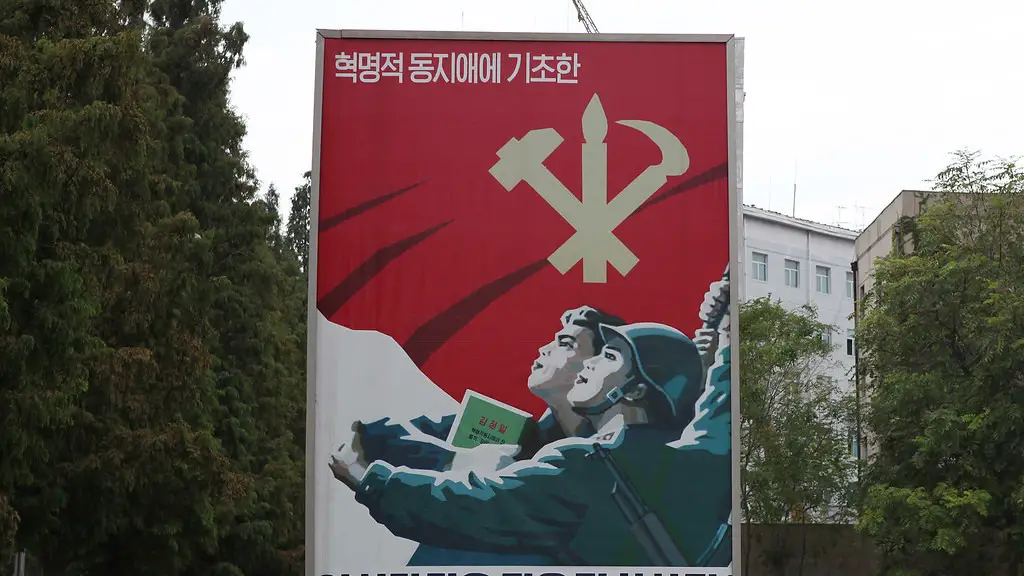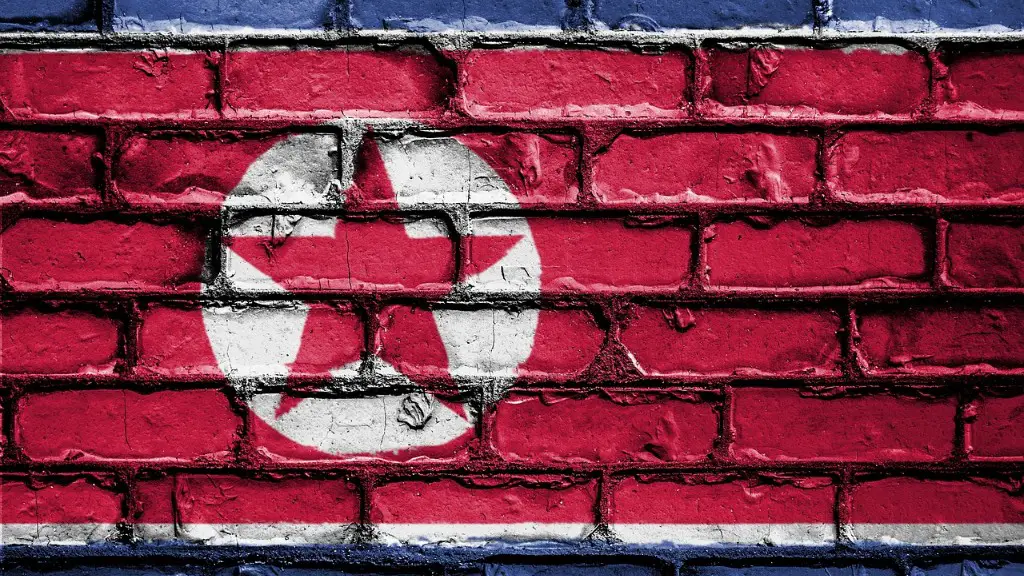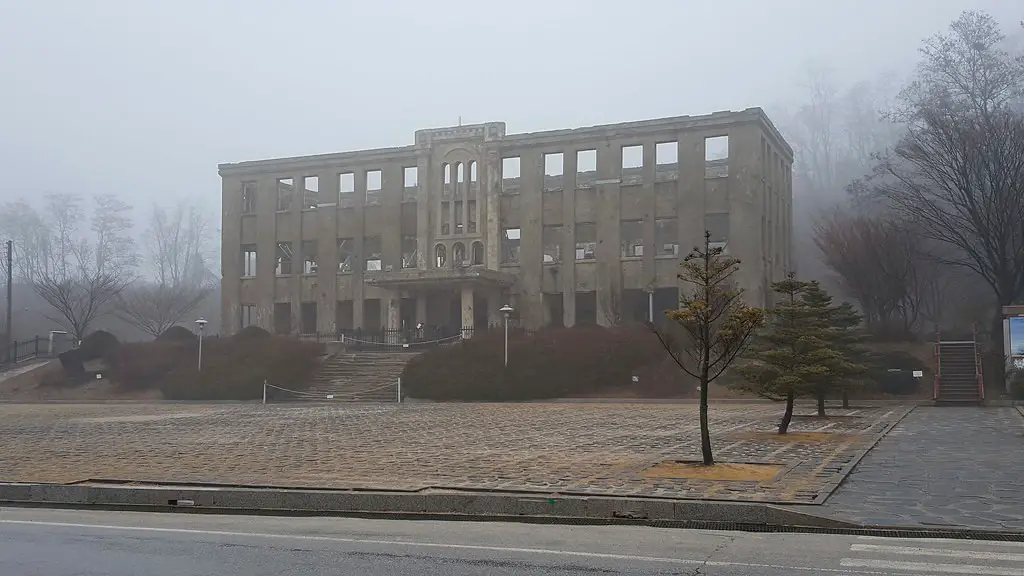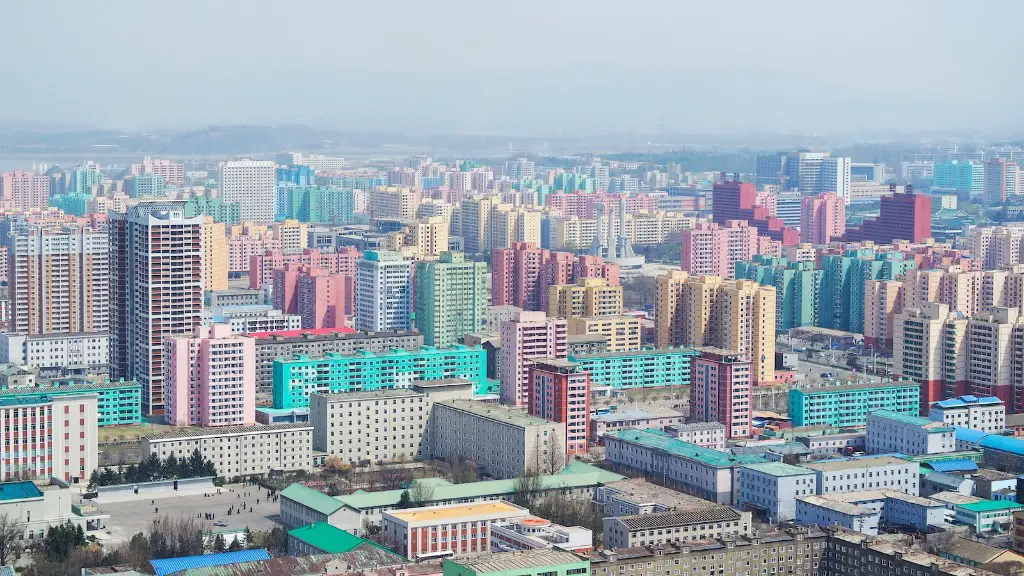Military Intervention
When it comes to the possibility of blowing up North Korea, most Western governments are wary of any kind of military intervention – but that hasn’t stopped some from having the discussion. The idea of blowing up the DPRK is often raised as a theoretical ‘quick-fix’ to the regime, but whether this is practical or feasible is another thing entirely. It would require the unofficial (and possibly unofficial) cooperation of a number of powers, and of course, the actual destruction of some of North Korea’s heavy infrastructure would have massive regional and global consequences that would be hard to predict ahead of time.
Foreign policy scholar Elina Vuola notes that blowing up North Korea is “not the most sensible solution”, as “it will cause more harm than good in the long run,” both to the Korean peninsula and to the international order. She argues that military intervention could lead to a “massive escalation of tensions,” worsening the situation for both Koreans and for global peace by introducing the possibility of collateral damage.
Meanwhile, international lawyer Francis Zhuang is of the opinion that North Korea is “a unique case”, and recommends that the question of blowing up North Korea must be answered on its own terms – meaning that military action should only be taken if it is deemed by top international experts as both necessary and beneficial. He is of the view that military action could be seen as an opportunity to send a message to the rest of the world: “That human rights and dignity are universal values that transcend national boundaries.”
Sanctions
Sanctions have historically been the preferred way of dealing with North Korea, as opposed to any kind of military action. It is widely believed that harsher economic sanctions could force the North Korean regime to make changes to its policies, or even lead to its collapse. Just recently, The United Nations Security council unanimously voted to sanction North Korea for several missile tests. These sanctions are said to be among the harshest ever imposed, with a ban on exports of coal, iron, lead, and seafood, and an the disruption of job prospects for North Koreans looking for work overseas.
However, not everyone is convinced that these sanctions will have any real effect on the North Korean regime; some believe that they may only serve to punish ordinary North Koreans. One expert, Lisa Collins of the Center for Strategic and International Studies, believes that while sanctions do have the potential to “impact the North Korean government in ways that are positive,” it is essential to “keep in mind the collective impact of sanctions on the North Korean people”, who are already among the most oppressed in the world.
At the same time, it is important to remain aware that sanctions could, in the worst case scenario, push the regime to take ever more extreme and desperate measures in order to maintain its grip on power, including the possible use of nuclear weapons.
Diplomatic Solutions
The idea of blowing up North Korea is often seen as a black-and-white issue, with proponents and opponents arguing for or against it without much nuance. For this reason, it is important to remember that there is always another side to any story, and that diplomatic solutions can often be the best route to take in a delicate and sensitive situation like this. Countries like the United States and China have both taken significant steps to engage North Korea diplomatically, and have even gone so far as to offer incentives to the regime in order to encourage more positive behaviour.
In 2016, the US and China joined together to create what was known as the “sunshine policy” – a system of incentives and concessions intended to encourage North Korea to engage more actively in the international community. China, in particular, has done much to ensure that their investments in North Korea are beneficial to both the regime and its people. Recently, they began the process of setting up a “comprehensive development zone” in the North Korean city of Sinuiju, which is meant to be a model for economic development in the country.
However, scholars like Chung-in Moon caution that there is still a long way to go before any real change is seen in North Korea; he notes that “the nuclear problem is a long-term, often intractable challenge, and it is not amenable to quick-fix solutions.” But, he believes that if the international community can use diplomatic solutions to create a “peaceful, negotiated settlement of the nuclear issue,” then this could eventually result “in a peaceful, unified Korean peninsula.”
Regime Change
One of the primary arguments put forward in favor of blowing up North Korea is that it would be more efficient in ending the despotic regime of the Kims, compared to peaceful diplomatic solutions or economic sanctions. While this may be true in the short term, it is ultimately a risky and unpredictable option; not only could it lead to a regional conflict and massive casualties, it could also result in a new leader coming to power who may be even more aggressive and oppressive than the current one.
At the same time, it is clear that something must be done to bring about reform in North Korea. In an op ed for the Foreign Policy journal, South Korean diplomat Kyeung-Soo Kim argued that the international community must “engage North Korea and move it toward a more open and tolerant society”, by creating more “political and economic incentives” to do so. He recommendes creating a neighborly “economic shock therapy” that would benefit countries in the region, while also creating the opportunity to provide North Koreans with new freedoms and choices.
However, he stresses that this will require a long-term commitment from the international community; it cannot be achieved through any quick-fix solutions or by using military or economic sanctions alone. He is of the view that the only way forward is for all relevant parties to work together in a “concerted and determined effort”.
Humanitarian Aid
When discussing ways to reform North Korea, it is important to remember that the situation of ordinary North Koreans should also be taken into account. It is estimated that around 18 million North Koreans are living in poverty, and are in desperate need of aid, both in the form of food, medicine and shelter. However, the regime’s dictatorial attitude has made it difficult for even the most basic aid to reach the most vulnerable citizens.
The UN recently called for more immediate humanitarian assistance to help North Koreans meet their basic needs. This includes providing support for healthcare providers and facilities, giving access to water and sanitation, and improving nutrition and food security. As UN humanitarian chief Stephen O’Brien notes, these efforts must be “multilateral, concerted and substantial” in order to make a real difference. He is of the view that “all sides have to work together to ensure that the most vulnerable in North Korea are not left behind.”
In addition to the UN’s efforts, many other international organisations, such as the Global Food Security Initiative (GFSSI), are doing their best to provide food aid to North Koreans in need. The GFSSI is working to improve food security in North Korea through various projects in the agricultural sector, including soil conservation, pest control and other agricultural technologies. Although the projects have yet to bear significant fruit, it is hoped that, in time, they will.
Governance Reform
If North Korea is to be reformed, there must also be an emphasis on improving governance in the country. It is well known that the Kim regime has been oppressing its people for years, whether through censorship, jailing political dissidents, or other means. The repression of the North Korean people is a factor that often goes unmentioned in discussions of reform, but it is essential. International human rights lawyer Ben Judah believes that this “cruel monopoly on power” must be broken in order to bring about positive change in North Korea; only then, he thinks, can its people have the freedom to express themselves without fear of retribution.
The European Union has recently called for more international action to be taken in order to address the human rights abuses in the country. They have demanded the release of all political prisoners, and called for the authorities to respect the freedom of speech and press freedom. In addition, they have also called for an end to the use of torture and ill-treatment, as well as for an end to discrimination against people with disabilities. All of these measures, the EU believes, would help “constructively” address the situation in North Korea.
At the same time, there are already some North Korean activists who are doing their best to bring about positive change. Shin Dong-Hyuk, a defector and human rights activist, is one of the leading voices in the call for greater awareness of the abuses in North Korea and for more international action. He believes that positive change in North Korea is possible, but only if all members of the international community, not just the US and China, take concerted action.
Public Opinion
When it comes to the question of “blowing up” North Korea, it is important to take into account the view of the North Korean people. While Western defence policy often focuses solely on the military and economic aspects of foreign policy, it is essential to note that public opinion must also play a part. After all, it is the North Korean people who will feel the most immediate and long-term effects of any military intervention or economic sanction, and so their views should be taken into consideration when making any kind of decision.
The bad news is that, due to the regime’s strict censorship, it is difficult to gauge the opinion of North Koreans on anything, let alone issues as complex as military intervention. However, recent polls conducted by US academics have indicated that a majority of North Koreans prefer diplomatic solutions and peaceful negotiations over any kind of military action. A 2014 survey found that 78% of those polled were against any kind of military conflict or war, preferring instead to see a diplomatic rapprochement between North Korea and the US.
Such polls indicate that ordinary North Koreans are weary of war, and prefer a peaceful solution to the current tensions. The results of the survey also show that North Koreans are not as hostile as they are often portrayed in the Western media, but rather that they are open to diplomatic solutions and international engagement.
Economic and Cultural Exchange
Finally, it is essential to consider the potential of economic and cultural exchange in the context of North Korean reform. This is because opening up the North Korean economy to the outside world could provide new opportunities to the North Korean people, while at the same time introducing a more progressive and modern culture to the country. As such, it has been suggested by some experts that South Korea and other international partners should invest in and promote various industries, such as tourism and technology, in order to provide new economic prospects for North Koreans.
Similarly, exchanges of other kinds could have a beneficial effect on the population. Scholars suggest allowing for increased cultural exchanges between North and South Koreans, as well as between North Koreans





